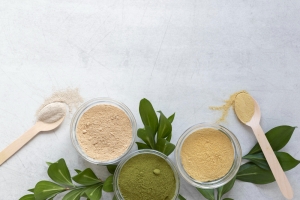Alcohol consumption is a common part of social gatherings and celebrations, but excessive drinking can lead to a range of negative effects on both our physical and mental well-being. If you think about how to reduce alcohol effect or If you're looking for effective ways to reduce the impact of alcohol on your body, this article provides valuable insights and actionable tips. By following these recommendations, you can promote a healthier relationship with alcohol and mitigate its harmful effects.
Understanding the Effects of Alcohol
Before we dive into strategies for reducing alcohol's impact, it's essential to have a basic understanding of how alcohol affects the body. When we consume alcoholic beverages, ethanol, the active ingredient in alcohol, enters our bloodstream and affects our central nervous system. This leads to a range of physical and cognitive changes, including impaired judgment, decreased motor skills, and altered mood.
Moderation is Key
The most effective way to reduce the negative effects of alcohol is through moderation. By consuming alcohol in moderate amounts, you can minimize the risks associated with excessive drinking. The Centers for Disease Control and Prevention (CDC) defines moderate drinking as up to one drink per day for women and up to two drinks per day for men. Remember, however, that these guidelines may vary depending on individual factors such as body weight, metabolism, and overall health.
Stay Hydrated
Alcohol has a dehydrating effect on the body, which can contribute to hangovers and other discomforts. To counteract this, it's crucial to stay hydrated while drinking. Make sure to drink plenty of water before, during, and after consuming alcohol. This will help dilute the alcohol in your system, lessen its impact, and minimize the chances of dehydration.
Eat Before and During Drinking
Having a meal before you start drinking and snacking on healthy foods while consuming alcohol can help reduce the effects of alcohol. Food in the stomach slows down the absorption of alcohol into the bloodstream, resulting in a more controlled and gradual release. Opt for nutrient-rich meals that include proteins, healthy fats, and complex carbohydrates to help mitigate the impact of alcohol on your body.
Pace Yourself
Drinking at a slower pace allows your body to metabolize alcohol more efficiently. Avoid consuming alcohol too quickly or participating in drinking games that encourage rapid consumption. Instead, savor your drink, take smaller sips, and allow yourself time to assess your level of intoxication. By pacing yourself, you can better gauge your alcohol tolerance and avoid excessive consumption.
Know Your Limits and Set Boundaries
Understanding your personal limits when it comes to alcohol is crucial for maintaining control and reducing its effects. Listen to your body and recognize when you've had enough. Avoid succumbing to peer pressure and be assertive in setting your boundaries. Remember, it's okay to decline an alcoholic beverage or opt for non-alcoholic alternatives.
Alternate with Non-Alcoholic Drinks
One effective strategy for reducing alcohol's impact is to alternate alcoholic beverages with non-alcoholic ones. This approach helps to slow down your alcohol consumption and keeps you hydrated. Consider enjoying a glass of water, a mocktail, or a refreshing non-alcoholic beverage between alcoholic drinks. It will not only lessen the overall amount of alcohol you consume but also provide a break for your body to process the alcohol already in your system.
Conclusion
Reducing the effects of alcohol requires a combination of mindful choices, moderation, and self-awareness. By implementing the strategies outlined in this article, including moderation, staying hydrated, eating before and during drinking, pacing yourself, setting boundaries, alternating with non-alcoholic drinks or a morning recovery drink, taking breaks from alcohol, and seeking support when needed, you can take proactive steps towards a healthier relationship with alcohol. Remember, your well-being is of utmost importance, and making conscious decisions about alcohol consumption can contribute to a happier and healthier life.





